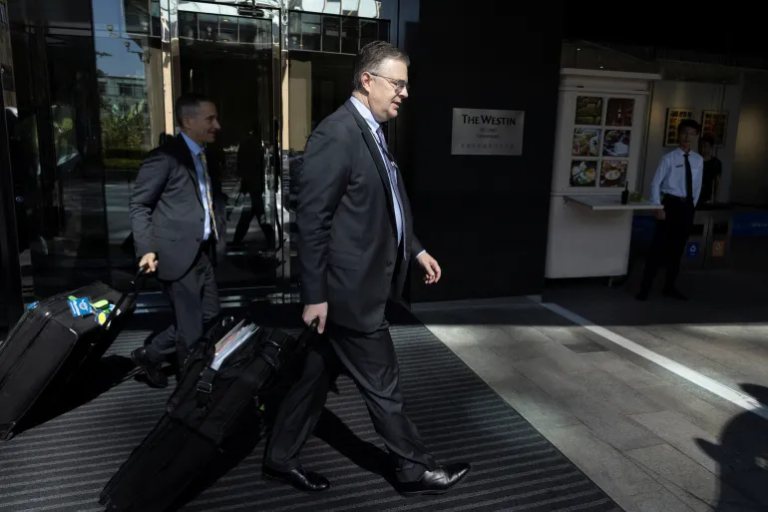Read in 3 mins.
South Korean President Yoon Suk-yeol arrived in Japan on Thursday for a crucial summit between Tokyo and Seoul, which are trying to ease their historic tensions over security challenges posed by Beijing and Pyongyang in the Asia-Pacific.
North Korea also marked this trip in its own way, by firing an intercontinental ballistic missile (ICBM) which fell in the Sea of Japan a few hours before Yoon Suk-yeol’s arrival in Tokyo.Getting informed with calm, hindsight and confidence is more necessary than everThe Digital Cross
The two-day state visit, the most important summit between Tokyo and Seoul for 12 years, is part of the continuation of the plan of the government of Yoon Suk-yeol announced last week to compensate South Koreans subjected to forced labor by Japan during the first half of the 20th century .
If it does not involve direct financial participation from Tokyo, the visit could sign the resumption of “shuttle diplomacy” between the two neighbors. It could possibly be followed by an invitation to Yoon Suk-yeol by Japanese Prime Minister Fumio Kishida at the G7 summit in May in Hiroshima, then by a trip by Fumio Kishida to Seoul.
The South Korean president made restoring ties with Tokyo a top priority upon his election a year ago. “The Japanese government will join us in opening a new chapter in Korea-Japan relations,” he said in an interview on Wednesday. “We must put an end to the vicious circle of mutual hostility and work together in pursuit of the common interests of our two countries ,” said Yoon Suk-yeol.
Historical litigation
But the past weighs heavily on their relations, marked by the dark period of Japanese colonization of the Korean peninsula (1910-1945), and in particular the question of the so-called Korean “comfort women”, these sexual slaves of Japanese soldiers during the Second World War. World War.
A 2018 South Korean court ruling ordering some Japanese companies to pay compensation for forced labor during the occupation precipitated bilateral relations into a new crisis, with the establishment of reciprocal trade barriers and the termination of their cooperation in several areas.
Japan believes so far that the historic dispute has been settled since 1965 by the normalization of bilateral relations, in particular via a package of loans and financial aid granted by Tokyo to Seoul.
The rise to power of Yoon Suk-yeol and the growing concerns caused by repeated provocations from Pyongyang and China’s growing regional ambitions have, however, revived hopes for reconciliation between the two neighbors.
“Sweeping changes are affecting international relations ,” notes Yuki Asaba of Doshisha University in Tokyo, and this “makes it all the more urgent for the United States, Japan, and South Korea to coordinate” and strengthen their ability to deter, according to this professor of Korean studies.
A strategic rapprochement
Yoon Suk-yeol and Fumio Kishida are expected to hold a rare joint press conference on Thursday. The two leaders had so far only met on the sidelines of international events. They are due to continue their discussions over dinner, and Japanese media reported that Mr. Yoon had expressed the wish to taste “ omurice” , a Japanese family dish consisting of an omelet on rice.
Beyond this gastronomic rapprochement, major challenges await the two countries, warns Park Won-gon of Ewha University in Seoul.
For him, the eventual results of this summit will depend on “the degree to which Prime Minister Kishida is ready to apologize” for Japan’s past crimes. Tokyo has said it stands by its historic apologies made in 1995 and 1998 for wartime acts, but many in South Korea consider them insufficient and criticize Mr. Yoon’s compensation plan.
The rapprochement between Seoul and Tokyo has however been hailed internationally, in particular by Washington, anxious to see its two closest Asian allies reconcile. For Yuki Asaba, Mr. Yoon’s concessions to Japan are partly motivated by his desire to get closer to Washington, with whom he wants an alliance “of a more global, comprehensive and strategic nature” in the economic, security or technological fields.
Source: La Croix







